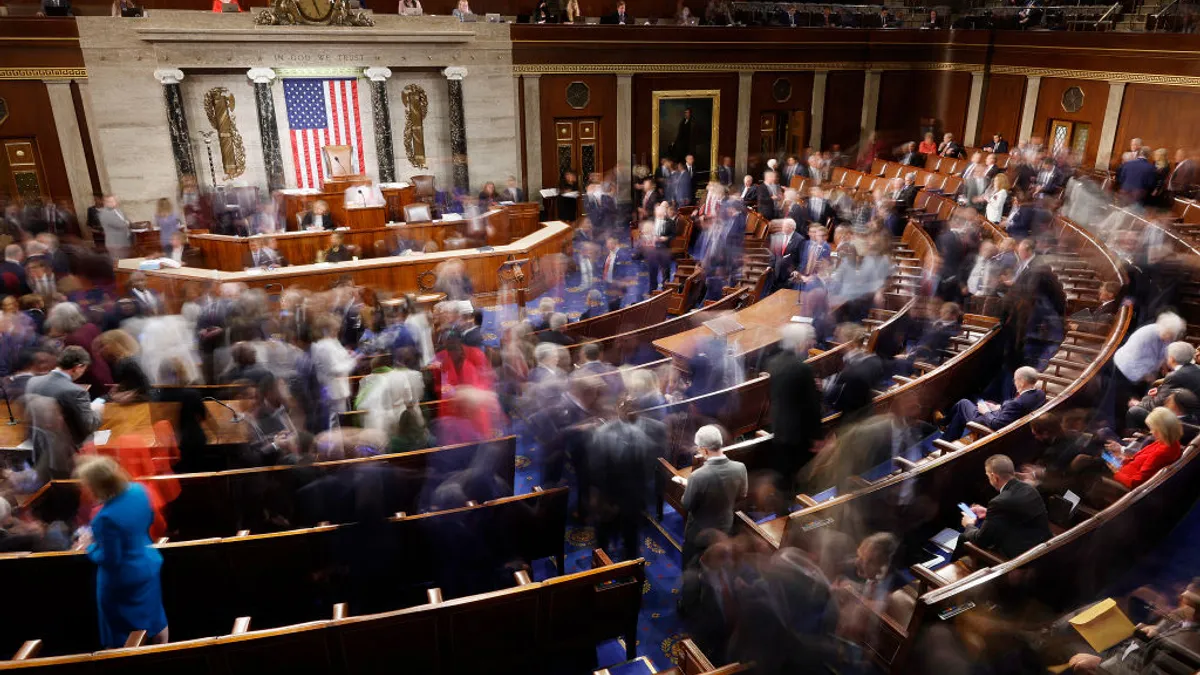Pharmacy benefit managers are facing an uphill battle to maintain their status quo in the healthcare arena. Known as the middlemen of the pharma industry, PBMs play an intermediary role between health insurers, pharmacies and patients, negotiating drug prices and designing formulary plans while mediating cost efficiency for their clients. Or so they claim.
According to critics, PBMs drive up drug costs through an opaque rebate system, and their joint ownership structure with pharmacies and health insurers creates an unfair and anticompetitive business model. Just three companies — CVS’s Caremark, Cigna’s Express Scripts and UnitedHealthcare’s OptumRx — control the vast majority of the PBM market. And their concentrated and complex operations have been catching heat amid calls for drug pricing reform.
In the last year PBMs have increasingly become the target of public scorn from lawmakers, the pharma industry and health insurers. The PBM rebate system has garnered so much ire that a group of executives from Amazon, Walgreens, PhRMA and more called the model a “dead man walking” a few months ago. However, meaningful reform repeatedly failed last year, and the pressure is on to turn the tide in 2025.
Here’s how PBM reform could shape up in the coming year.
FTC takes action
After failing to target PBMs for years, the Federal Trade Commission took a bold step in July last year when it first published a report blaming PBMs for higher drug prices. In September, the agency sued Caremark, Express Scripts and OptumRx and their affiliates for artificially inflating the price of insulin and anticompetitive and unfair behavior.
“Caremark, ESI and Optum — as medication gatekeepers — have extracted millions of dollars off the backs of patients who need life-saving medications,” Rahul Rao, deputy director of the FTC’s Bureau of Competition, said at the time. “The FTC’s administrative action seeks to put an end to the Big Three PBMs’ exploitative conduct and marks an important step in fixing a broken system — a fix that could ripple beyond the insulin market and restore healthy competition to drive down drug prices for consumers.”
The FTC used insulin as their drug of choice in the lawsuit due to the public backlash over the cost of the life-saving medication. Insulin costs have also caught the attention of lawmakers, prompting a Senate inquiry in 2021. Ultimately, lawmakers capped the monthly co-pays for insulin at $35 per month for Medicare recipients through the Inflation Reduction Act.
The pharma industry has long pointed the finger at PBMs for drug costs, with Eli Lilly CEO David Ricks blaming PBM fees and rebates for insulin prices during a Senate panel hearing in 2023. With the FTC also shifting some of the blame to PBMs, pharma’s role in drug prices may get less attention.
However, Caremark, Express Scripts and Optum sued the agency right back in November, calling the FTC’s suit a “sweeping attempt to reshape an entire industry.”
Both suits are still pending, and the FTC will see a leadership shakeup under the incoming administration. President-elect Donald Trump picked Andrew Ferguson, already an FTC commissioner, as its next leader, pending Senate confirmation. Following the release of the agency’s PBM report in July, Ferguson levied criticisms against how the study was put together, including its reliance on public comments, but stated he supported the report all the same.
Legislative intent mounts
The debris field of dead legislation in Congress is littered with attempts at PBM reform from the past few years as nothing has stuck so far. Most recently is the federal funding bill approved by Congress at the end of December to keep the government open.
The stopgap measure was a short-term fix that originally included major reform that would have required PBMs to pass all rebates on to Medicare sponsors and the group health market, and prohibited PBMs from billing Medicaid states and plans more for drugs than what they reimburse pharmacies. PBMs would have also been required to improve transparency by providing detailed data on prescription drug spending to regulators. Earlier in December, Rep. Buddy Carter (R-Ga.) held a press conference with House members across the aisle to push PBM reform in the end-of-year spending package.
The reform reached bipartisan agreement before the bill was sabotaged by Trump and Elon Musk, who was tapped to lead the nascent Department of Government Efficiency. Congress instead passed a stripped-down funding measure that kept the government open until March 14, 2025 — without PBM reform and other healthcare provisions.
With reforms so close, pharma industry groups are keeping the pressure on Congress.
“We’re disappointed that Congress missed another opportunity to hold PBMs accountable,” Alex Schriver, senior vice president of public affairs of PhRMA, told PharmaVoice in an emailed statement. “This is not how the healthcare system should work, and we will be working with the new Congress and administration alongside patients, pharmacists, providers, employers and countless others to get these important reforms over the finish line.”
PBM reform has broad support across Congress in various forms. Last month, Sens. Elizabeth Warren (D-Mass.) and Josh Hawley (R-Mo.) introduced The PBM Act, which would prohibit joint ownership of PBMs and pharmacies and prohibit insurers from owning pharmacy businesses. Among the top three largest PBMs, Caremark is owned by CVS Health, the largest pharmacy chain in the U.S. OptumRx is owned by the largest U.S. health insurer UnitedHealth Group, and Express Scripts is owned by insurer Cigna. The bill would enable the FTC to break up these monopolies, although it’s unclear if the PBM Act will be reintroduced in the new Congress.
Several bills have been introduced over the last two years, including the DRUG Act, the Pharmacy Benefit Manager Reform Act, The Pharmacists Fight Back Act and Health Care Prices Revealed and Information to Consumers Explained Transparency Act — but none have been approved. At the end of 2023, the House passed the Lower Costs, More Transparency Act, which requires PBMs to report certain information on spending, rebates and fees on covered drugs, which later died in the Senate. Any of the bills could once again be taken up in 2025.
The Trump administration
While Trump may have sunk PBM reform through the December funding package, he has continually bashed the “middlemen” of the pharma industry.
“We are paying far too much, because we are paying far more than other countries,” Trump said during a press conference last month. “We have laws that make it impossible to reduce [drug costs], and we have a thing called a ‘middleman’ … that makes more money than the drug companies, and they don’t do anything except they’re middlemen. We are going to knock out the middleman.”
Trump’s comments led to share price declines for CVS Health, UnitedHealth Group and Cigna, Bloomberg reported. While it’s unclear if Trump has specific plans to "knock out” PBMs, his words signal he may be friendly to signing reform during his second term.



















